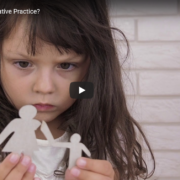Create Your Own Path with Collaborative Divorce
If you’re reading this, chances are you’re either going through a divorce or know someone who is. And let’s face it, divorce isn’t exactly a walk in the park. But what if I told you that in Florida there’s a way to navigate this challenging time while still preserving your self-determination and sanity? Enter: Collaborative Divorce.
Picture this: instead of duking it out in a courtroom with lawyers battling it out, Collaborative Divorce brings everyone to the table – you, your soon-to-be ex, and a team of professionals (including separate attorneys to provide each of you with independent legal advice) dedicated to finding solutions that work for everyone involved. Sounds pretty good, right? Here’s why it’s worth considering:
Collaborative Divorce Puts You in the Driver’s Seat
One of the biggest perks of Collaborative Divorce is that it empowers you to take control of your own future. Instead of leaving decisions about your life in the hands of a judge, you and your soon-to-be ex get to work together to find solutions that meet both of your needs. From dividing assets to co-parenting agreements, you have a say in it all.










